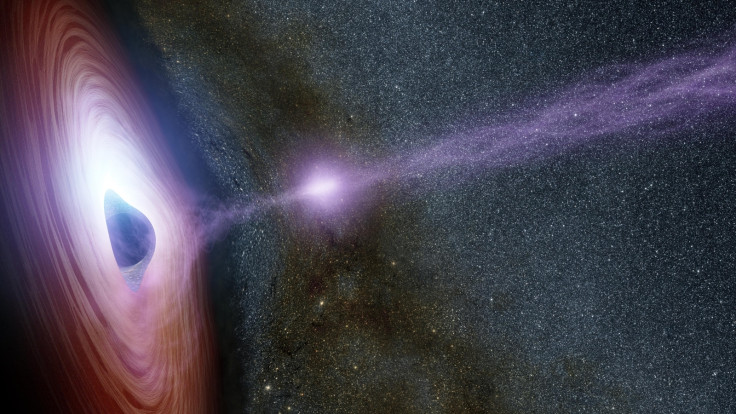New massive black hole 100,000 times bigger than the Sun found at the heart of the Milky Way
Scientists believe they've discovered a new type of black hole, hidden within a massive cloud of molecular gas.

Scientists believe they've discovered a new type of black hole at the heart of the Milky Way galaxy. The massive black hole, believed to be 100,000 times the mass of the Sun, was discovered hidden within a giant cloud of molecular gas and is the best evidence found as of yet of the long-sought "intermediate-mass" black holes, which have never been officially identified before.
This gigantic invisible black hole could be ranked as the second largest ever found in our galaxy, after the Sagittarius A* at the centre of the Milky Way. The discovery was made by Japanese scientists led by Tomoharu Oka from Keio University. The researchers announced the intermediate-mass black hole candidate in a research paper, adding that they found a "peculiar molecular cloud".
The discovery, if confirmed could mark a new avenue of research into supermassive black holes and how they grow to become such behemoths.
"It is widely accepted that black holes with masses greater than a million solar masses lurk at the centres of massive galaxies," the scientists wrote in their research paper published in Nature Astronomy. "The origins of such 'supermassive' black holes (SMBHs) remain unknown, although those of stellar-mass black holes are well understood. One possible scenario is that intermediate-mass black holes (IMBHs), which are formed by the runaway coalescence of stars in young compact star clusters, merge at the centre of a galaxy to form a SMBH."
The existence of a new Milky Way black hole was first hinted at last year by the researchers in a separate study. The scientists now backed up their previous findings using new data from the Atacama Large Millimetre/submillimetre Array in Chile.
"This is the first detection of an intermediate-mass black hole candidate in the Milky Way galaxy," Oka told The Guardian.
The researchers are also reportedly working on identifying more black hole candidates. "I am really excited, I feel happy," Oka said, Gizmodo reported. "We have already detected several candidates for stray black holes. Some of them seem very large."
© Copyright IBTimes 2025. All rights reserved.






















